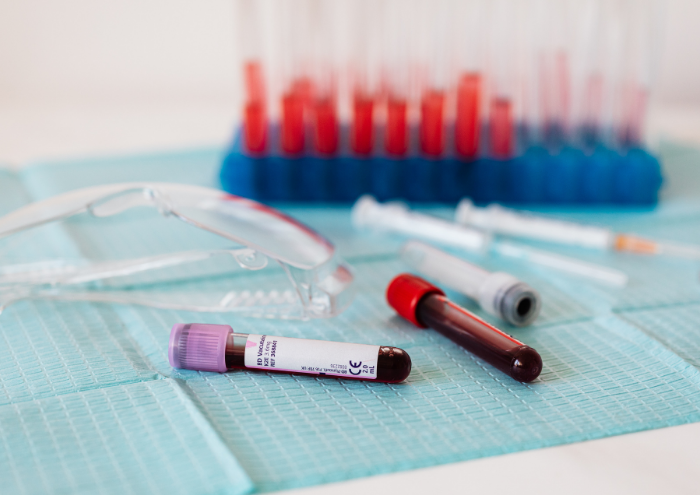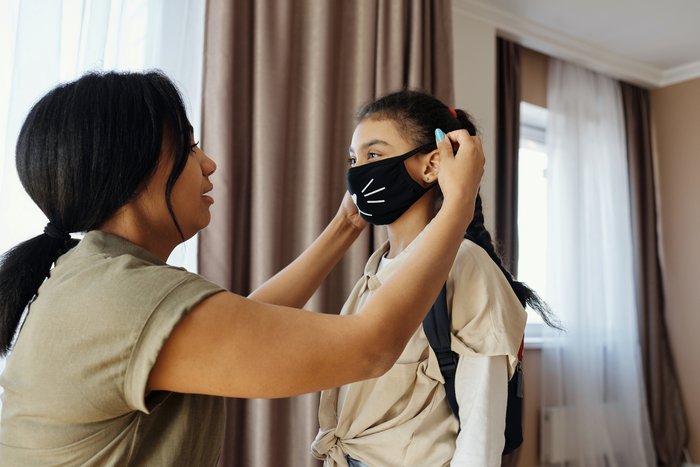Covid vaccine: should people with blood cancer get an antibody test?
Here's what we think people with blood cancer should know about antibody tests, such as how they work and what the results might mean for you.

People with blood cancer have been telling us in the past few weeks that they’re thinking about getting an antibody test. They hope to understand if the Covid vaccine has given them protection against Covid.
We wanted to explain a little more about what antibody tests show, and what the results might mean for you.
What are Covid antibody tests?
An antibody test detects small proteins, called antibodies, in the blood that are produced either in response to infection, or as a result of vaccination. We produce antibodies regularly, as they help fight off viruses, bacteria and other foreign organisms that don’t belong in our body.
Importantly, antibodies are involved in fighting off infection to Covid. One of the things that vaccines aim to do is to prompt our immune systems to create antibodies that can fight Covid infection.
This helps to ensure that if we did come into contact with the virus, our bodies would be armed and ready to fight it.
Should I get a Covid antibody test?
We know that people with blood cancer might not respond as well to the vaccine due to their weakened immune systems, and so one of the big unanswered questions is – how much protection could the Covid vaccines offer people with blood cancer?
The benefit of an antibody test is that it can give some indication on whether someone has responded to the vaccine.
However, it’s your choice on whether you decide to get an antibody test or not. We’ve heard of people receiving tests ordered by their clinicians, while others have ordered tests themselves.
If you do order a test, it’s important you order the correct one. We have a whole host of different antibodies circulating in our blood and it’s important the test you get looks for the correct one.
How do Covid antibody tests work?
Some of the antibody tests being used can indicate if someone has developed Covid before, and will search for antibodies against something called the ‘nucleocapsid’.
The two vaccines available in the UK don’t cause the immune system to produce a response to this part of the Covid virus.
Instead, they wake-up the immune system and cause it to produce an immune response to something called the ‘spike’ protein – a protein found on the outside of the virus.
So, if you do order an antibody test, make sure that it looks for antibodies against the spike protein.
Will the Covid antibody test tell me if the vaccine has worked?
Antibodies are only one piece of a complex immune puzzle. That’s why it’s important to remember that even if you don’t have antibodies following vaccination, you may still be protected. There are two parts to this:
1. Even if you don’t produce antibodies, there may be other immune cells playing a role in protecting you against Covid that are more difficult to test for.
There are a whole host of cells involved in protecting us against disease, such as B-cells. These types of cells produce antibodies that can be picked up using an antibody test.
We also have T-cells that are involved in destroying invaders. Covid vaccination may also prime our T-cells so they could be one step ahead of the virus and destroy it if we were to become infected.
T-cells play a vital role in fighting infection, but they’re much more difficult to be picked up by a test. Antibody tests won’t tell you if you have produced T-cells from vaccination.
So, if you don’t have any antibodies, this doesn’t necessarily mean that your immune system hasn’t responded.
It might be that you have other cells primed and ready to fight Covid that are giving you some protection.
2. We don’t know for sure which part of our immune system is responsible for fighting infection and destroying Covid.
Years of studying the immune system gives us a pretty good understanding of the cells involved in fighting infection. We know typically that B-cells – which produce antibodies – and T-cells are important, but we aren’t yet sure which ones are the most important in fighting Covid.

Want to read more stories like this?
Join our mailing list to get stories like this delivered directly to your inbox every month.
Clinical trials and Covid vaccines
The clinical trials that tested vaccine effectiveness worked by giving some people a real vaccine and others a placebo. They then looked at how many people who got the vaccine developed Covid against those who had the placebo. Comparing these two groups gave the research team an idea of how effective the vaccine is at protecting people against the infection.
What hasn’t yet been studied in detail is how the vaccine gives this protection. We can make an assumption that both T-cells are B-cells are important, but we don’t know this for sure.
It might be the case that T-cells are vitally important in protecting someone from Covid, but that B-cells and the antibodies they produce are less so.
This essentially means that an antibody test doesn’t give you the full picture.
While you may feel disappointed at not having antibodies, you may still have some protection. This means you may develop additional protection when you get the second dose of the vaccine.
Equally, if you do have antibodies picked up using a test, that’s likely to be good news. However, it may not be the full picture, which is why we encourage you to keep taking extra precautions to avoid the virus. We don’t yet know how long any protection might last, and this is something we need to find out.

So, how can we find these answers?
We are proud to be leading the Blood Cancer UK Vaccine Research Collaborative, working in partnership with other charities and organisations to get as much information as possible about the effectiveness of the vaccines for people with blood cancer.
To do this, the Collaborative is hoping to fund multiple research studies that will explore how people with different types of blood cancer have responded to the vaccine, to give us a clearer understanding of how much protection our community is getting.
We’re lucky to have the support from a number of partners for this work but we need your help. Whatever you can donate, you’ll be helping us find answers about the vaccines for people with blood cancer, helping our community return to a normal life. Because we need to know if the vaccines protect people with blood cancer.
If you've got questions or concerns around the coronavirus, or about blood cancer in general, please don't hesitate to call or email our free, confidential support team.
